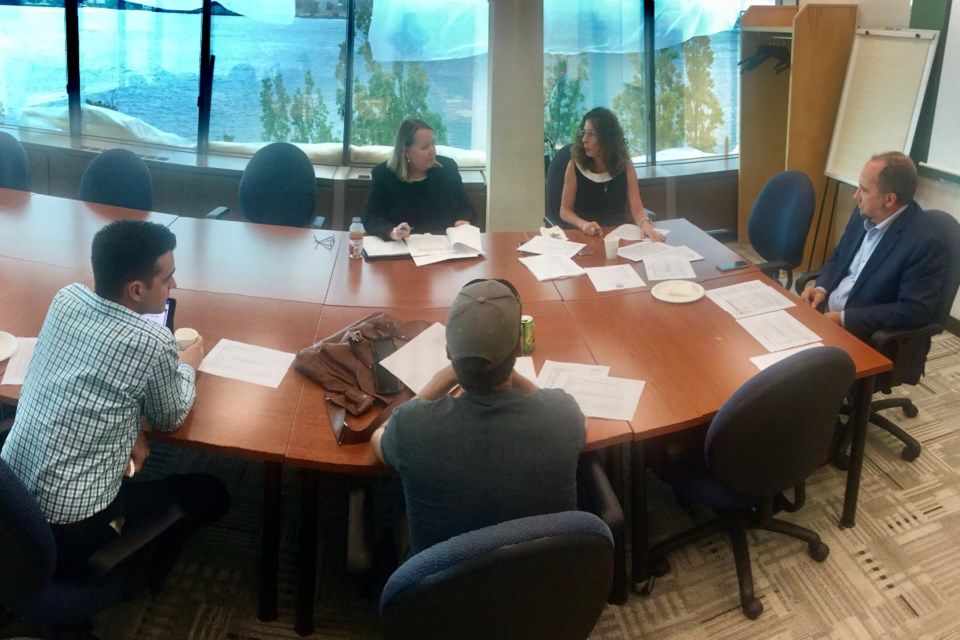At noon on Tuesday, after understandable bellyaching about the far-more-interesting things they all could be doing during these final days of August, members of Sault Ste. Marie's procedural bylaw review committee came to order.
Mayor Provenzano had more pressing duties to attend to than fretting about the pernickety rules that govern the calling and conduct of municipal meetings.
His Worship served notice he'd be late getting back from the steel plant, where he was busy dollarizing the Ring of Fire ferrochrome initiative.
"Start without me," Provenzano had instructed.
So they did.
Ward 3 Coun. Matthew Shoemaker was there, sitting next to his ballcap-crowned Ward 2 counterpart Luke Dufour.
Also in attendance were city solicitor Karen Fields, chief administrative officer Malcolm White and city clerk Rachel Tyczinski.
At 12:14 p.m., Mayor Provenzano finally joined his fellow committee members, rushing directly to the meeting room even though he'd been advised part of his office ceiling had collapsed because of the overnight rainfall.
Coun. Dufour was chosen to chair Sault Ste. Marie's most annoyingly hum-drum – albeit necessary – civic committee.
Clerk Tyczinski suggested that a number of updates to the procedural bylaw be considered to accommodate recent changes to the province's Municipal Act.
The most-discussed item was a new discretionary ability for municipalities to allow members of a council, local board or committee to participate electronically in meetings.
This would be allowed only for meetings open to the public.
Any member participating electronically would not be counted in determining whether or not a quorum was present at any point during the meeting.
Tyczinski said many details of electronic participation have yet to be ironed out, including:
- does the electronic participation allow the member to hear and be heard only, or to see and be seen as well?
- can the mayor (or acting mayor) participate electronically?
- will there be a limit as to the number of members who can participate electronically? (No more than five members could participate electronically as quorum is six)
- can a member participating electronically vote on the matters being considered?
- can a member participating electronically move or second a motion or introduce amendments?
- what happens if the member’s electronic connection is lost? If the meeting is recessed as a result thereof, for how long before resuming the meeting?
- what happens if council (or the board or committee) goes into closed session? (Members are not permitted to participate electronically in closed session, and therefore may not have all of the information that other members have regarding items then discussed and voted on in open session)
- technological capacity and ability of boards or committees of council
Checking with other municipalities of Sault Ste. Marie's size, Tyczinski found 54 are not allowing electronic participation in meetings, while just two have embraced the idea so far.
Tyczinski recommended that electronic participation in meetings not be approved at this time.
City Council has been experimenting recently with digital tabulation of votes, but so far the technology has been either inoperative or very slow.
Coun. Shoemaker commented that as technology improves, more and more municipalities can be expected to adopt it.
Shoemaker suggested that money be set aside annually for technological improvements.
"It might be three or four years before we get there, but at least at that point we've got a pot of money. We used to have a technology reserve/ I think we collapsed it," he said.
The committee agreed to ask City Council to find additional funds to allow for possible future expansion of electronic participation in meetings.
